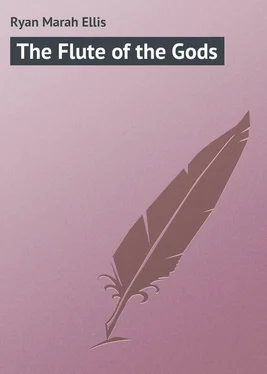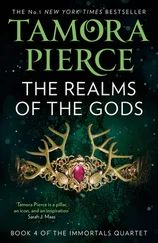Marah Ryan - The Flute of the Gods
Здесь есть возможность читать онлайн «Marah Ryan - The Flute of the Gods» — ознакомительный отрывок электронной книги совершенно бесплатно, а после прочтения отрывка купить полную версию. В некоторых случаях можно слушать аудио, скачать через торрент в формате fb2 и присутствует краткое содержание. Жанр: foreign_prose, на английском языке. Описание произведения, (предисловие) а так же отзывы посетителей доступны на портале библиотеки ЛибКат.
- Название:The Flute of the Gods
- Автор:
- Жанр:
- Год:неизвестен
- ISBN:нет данных
- Рейтинг книги:3 / 5. Голосов: 1
-
Избранное:Добавить в избранное
- Отзывы:
-
Ваша оценка:
- 60
- 1
- 2
- 3
- 4
- 5
The Flute of the Gods: краткое содержание, описание и аннотация
Предлагаем к чтению аннотацию, описание, краткое содержание или предисловие (зависит от того, что написал сам автор книги «The Flute of the Gods»). Если вы не нашли необходимую информацию о книге — напишите в комментариях, мы постараемся отыскать её.
The Flute of the Gods — читать онлайн ознакомительный отрывок
Ниже представлен текст книги, разбитый по страницам. Система сохранения места последней прочитанной страницы, позволяет с удобством читать онлайн бесплатно книгу «The Flute of the Gods», без необходимости каждый раз заново искать на чём Вы остановились. Поставьте закладку, и сможете в любой момент перейти на страницу, на которой закончили чтение.
Интервал:
Закладка:
CHAPTER V
TAHN-TÉ AMONG STRANGERS
The one thing to which the boy gave awed attention was that when the time came for the villages to fight–a leader would be born to them–if the people of the valley were true to their gods they would be strong always, Ki-pah the prophet told them to remember always the war star in the sky–the star Po-se-yemo had told them of, when it moved, the time to make war would be here.
And when the time came to fight, a leader would come to them, as he, Ki-pah had come! Because of this thought was the heart of the boy thrilled that he had been called a reed by the river–a reed through which music of the desert gods might speak.
He was filled with wild fancies of mystic things born of these prophecies. And the old men said that perhaps this was the time of which Po-se-yemo, the god, and Ki-pah, the prophet, had told!
The vote of a Te-hua council has to be the agreement of every man, and the star of the morning brought dawn to the valley before the last reluctant decided it was well to send a messenger to learn of the strange gods.
But as the sun rose Tahn-té bathed in the running water of the river, and his prayer was of joy:–for he was to go!
In joy, and with the light of exaltation in his face he said farewell to boy thoughts, and walked lightly over the highlands and the valleys to Ua-lano, and thence followed the adventurers to Ci-cu-yé and bent the knee to Father Luis, and kissed the cross, and let water be sprinkled over him, and did all the things shown him with so glad a heart that the devoted priest gave praise for such a convert from the pagan people. So pleased was he with the eagerness of Tahn-té to learn, that he made him his own assistant at the ceremonies of the Holy Faith.
And after each one, the boy washed his hands in running water, and scattered prayer meal to the gods of the elements, and to the Sun Father God, and knew that in Provi-whah his mother was praying also that he be not harmed by the god of the gold hunters–and that he come back strong with the white man’s magic.
The boy Ka-yemo of the Tain-tsain clan was also sent–but neither boy was told of the quest of the other. The old men decided it was better so. Without pay they went with the Spanish adventurers, one serving the men of arms and learning the ways of the strange animals, and the other serving the priests and learning the symbols of the strangers’ creed of the one goddess, and two gods, and many Go-h[=e] – yahs, called saints by the men of the iron clothes.
They both saw many strange things in Ci-cu-yé, and they saw the strange Indian slave, whom the old men of Ci-cu-yé instructed to lead the men of iron from their land with the romance of Quivera. And the slave did it, and told the strangers of the mythic land of gold and gems, and lost his life in the end by doing so, but the life of the romance was more enduring than any other thing, and the spirit of that treasure search still broods over the deserts and the mountains of that land.
But the stay of Ka-yemo was not even the length of the first winter with the strangers. For in Tiguex where the great captain (Coronado) wintered, and made his comfort by turning the natives out of their houses, there was a season of grievous strife ere the Spring came, and the two boys of Te-hua saw things unspeakable as two hundred Indians of the valley, captured under truce, were burned at the stake by the soldiers of the cross.
One of the reasons for the crusade to the north as written in the chronicles of Christian Mexico was to save the souls of the heathen for the one god,–and his advocates were sending the said souls for judgement as quickly as might be!
Tahn-té stood, pale and tense in the house where the chapel of Fray Juan Padilla had been established,–once it had been the house of the governor of the village who might even now be among the victims of the broken trust.
On the altar was a crucifix in gold on ebony, and the eyes of the boy were not kindly as he regarded it.
“They lie when they say you are a god of peace like our god Po-se-yemo,” he said. “They lie when they say you are the god of the red man–you are the white god of the white people–and you will let the red men hold not anything that your white children want!”
He heard himself speak the words aloud there alone where the new altar was–he seemed to hear himself saying it over and over as if by the sound of his own voice he could kill the sound of the tortured red men in the court.
A blanketed figure ran in at the open door, halted at the sound of Tahn-té’s voice–and then flung himself forward. It was Ka-yemo and his teeth were chattering at the thought of the inferno without.
“It may be they will not look for us here,” he said as he saw who it was in the chapel–“Perhaps–if one keeps near–to their strong god: and you are close also–and–”
“I stay close because it is my work,”–said Tahn-té. “Some of the men tied to the stakes out there bent before their strong god and said prayers there.–Did it save them?”
“They will kill us–we will never see our people–they will kill us!” muttered Ka-yemo shaken with fear.
“I do not think they want to kill us:–they still need us for many things. We are only boys, we have not wives that we refuse to give to the white men–if we had it might be different, who knows?”
“Is that the cause?”
“The white men will give a different one–but that is the cause! The men of this valley think it is enough if they give their houses, and their corn, and their woven blankets to their fine white brothers:–the red men are foolish men,–so they burn at the stake out there!”
Ka-yemo stared at him, and crouched in his blanket.
“You say strange things,” he muttered. “I think when they get crazy with the spirit to kill that they will kill us all. I do not stay to be killed–I go!”
Tahn-té staring at the emblems of holiness on the altar scarcely heard him.
“I go, Tahn-té,–I go if I have to swim the river with the ice.–Do you stay here to be killed?”
“I am here to learn many things–I learn but little yet, I cannot go.”
“But–if you die?”
“I think it is not yet that I die,” said Tahn-té–“There is much to do.”
“And–if I live to see–our people?”
“Tell my mother I am strong–and I feel her prayers when the sun comes up. Tell the governor I stay to learn what the white god does for the red men; when I have things to tell the people I will come back to Povi-whah.”
But the ice of that winter melted, and the summer bore its fruit, and the second spring time had come to the land before Tahn-té crossed the mesas and stood at his mother’s door.
“Thanks–that you have come,” she said, and wept, and he held her hand and did not know the things to say, only:–“Thanks that our gods have brought me back.”
“And the magic of the white man?”
“It is here,” and he opened a bag made of buffalo skin, and in it were books and papers covered with written words. She looked on them with awe. Her son was only a boy but he had won that which was precious, and earned honors from the men of her tribe and her clan.
“Not to me must you tell it first,” she said–“The Ruler will hear you, and the governor,–they will decide if it is to be known, or if it is to be secret.”
The old men sprinkled prayer meal–and smoked medicine smoke over the books to lift any lingering curses from the white men’s god, and then the boy opened the pages and made clear how the marks stood for words, and the words put all together stood for the talk of the white god. It was a thing of wonder to the council.
“And it is a strong god?” asked the Ruler.
Читать дальшеИнтервал:
Закладка:
Похожие книги на «The Flute of the Gods»
Представляем Вашему вниманию похожие книги на «The Flute of the Gods» списком для выбора. Мы отобрали схожую по названию и смыслу литературу в надежде предоставить читателям больше вариантов отыскать новые, интересные, ещё непрочитанные произведения.
Обсуждение, отзывы о книге «The Flute of the Gods» и просто собственные мнения читателей. Оставьте ваши комментарии, напишите, что Вы думаете о произведении, его смысле или главных героях. Укажите что конкретно понравилось, а что нет, и почему Вы так считаете.












